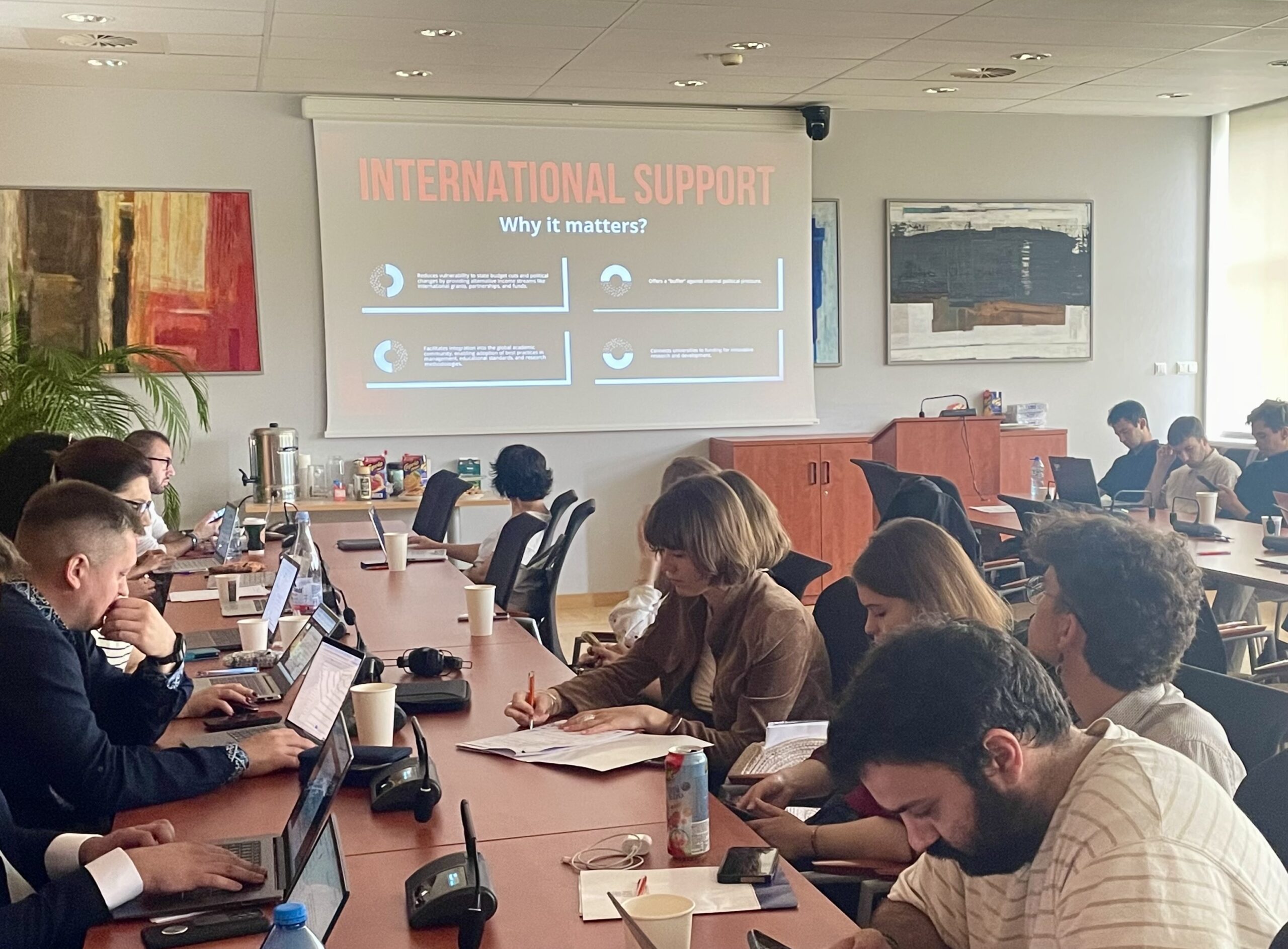In this first feature from our series of student projects, we highlight elements of the outstanding work by Group 1, who tackled the complex issue of institutional autonomy in Ukrainian higher education.
Team members:
Kira Ruban – Adam Mickiewicz University, Poland
Anna Herkaliuk – Adam Mickiewicz University, Poland
Larissa Ley – University of Graz, Austria
Olha Pryvalova – International Humanitarian University, Ukraine
Anastasiia Malovik – International Humanitarian University, Ukraine
What is institutional autonomy—and why does it matter now more than ever?
Ukraine’s journey toward greater university autonomy has been long and uneven. Before the full-scale invasion in 2022, the 2014 Higher Education Act marked a turning point, allowing universities more freedom in shaping their curricula, managing budgets, and selecting leadership. Supported by both internal reforms and international partnerships, Ukrainian higher education was stepping toward increased independence.
However, war has tested this progress. Students’ research found that over 2,000 educational institutions have been affected since 2022, with over 300 completely destroyed. This has resulted in a sharp increase in centralised state control, curtailed mobility, and the erosion of local decision-making.
Can universities maintain true autonomy in a time of war?
The students highlighted how wartime policies transform education into a political tool. Both Russia and Ukraine have adjusted curricula to align with wartime goals—Russia enforcing centralised authority and patriotic narratives, and Ukraine asserting sovereignty and resilience.
While international aid has been essential in supporting Ukraine’s universities—with grants, exchanges, and research collaborations—increased dependence on their financial support creates pressure to align with dominant western narratives.
Final Reflection
In war, the university is more than an educational institution—it is a cultural and political actor. As the team so poignantly asked:
“Are universities in support of free minds, state tools, or something in between?”

